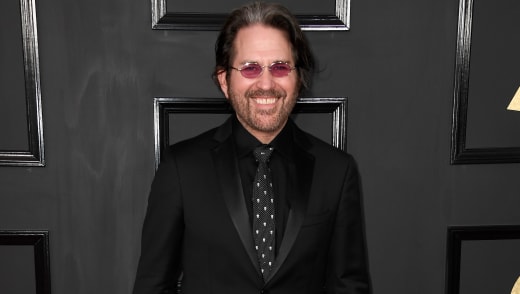
Notable rock musician, Kip Winger, known especially for his 1998 self-titled release with his band Winger, recently talked with TV Fanatic to discuss his career, from his heady days of rock and roll fame, to his love for classical composition while promoting the Paramount+ documentary, I Wanna Rock: The ‘80s Metal Dream.
Winger’s multifaceted career offers a look inside a musician’s path, navigating the music industry’s highs and lows and finding his own voice through it all.
His musical journey began with his self-taught immersion in rock. “I started out in a rock band with my brothers, and I was always a self-taught musician,” he said. Living in New York, he focused heavily on his music, working with various composers to hone his craft.
His first taste of commercial fame came in 1984 with a song for Kix, and in 1985 joined Alice Cooper’s band, where he remained for two years before setting out on his own with Winger.
Winger’s first album, “Winger,” offered a meteoric rise for the band, with its music catapulting off of the success of what’s often called the “hair metal” of the period.
Just as quickly as they rose, they came crashing to a halt, the butt of jokes when the industry turned away from fluffier, happier sounds and toward the more profound grunge scene.
He’s shared his story so many times over the years he’s lost count. But reflecting on I Wanna Rock: The ‘80s Metal Dream, Winger said, “It was the first time the story was told with a lot of integrity… everybody did their homework and were presenting this in a decent light.”
He stressed the significance of giving a balanced overview of his experiences, revealing the evolution of his career rather than focusing on well-known stories.
A lesser man may find discussing the details daunting, wishing to put them behind him, but Winger dismissed any regrets about his career trajectory, joking, “The only thing I regret is selling my Manhattan Loft in Tribeca that I bought for 300 Grand.”
However, he does acknowledge a darker period when Winger faced undue criticism, a movement that started with a Metallica member tossing darts at Winger in their “Nothing Else Matters” video and a recurring joke on Beavis and Butthead.
History isn’t immediately kind in the aftermath, but Winger no longer minds. “I’ve made it my mission to set the record straight on which one of these people is a better musician.”
That experience helped drive him toward a career as a successful classical composter, something he never imagined early on. “It wasn’t even until I was 35 that I was able to write an orchestral score,” he said.
He notes his Grammy nomination for classical composition as a vindication of his incorrect labeling as a “poser” but also acknowledges the reality of cyclical shifts in popularity.
“The next cool thing comes up, and people follow it, you know? We came too late, and I don’t think I would’ve necessarily gotten to where I am now with the accomplishments I’ve had in classical music if I was a major rock band touring nonstop, making millions,” he says.
Winger now describes himself as more of a “ninja” in rock and still a “student” in classical composition. “If you’re really listening, it’s very humbling,” he says of studying his favorite composers, such as Revelle, WC Hoer, and San Tan, among others.
He draws a parallel between reading scores and reading code, saying of Hoer’s work, “It’s like reading code on a computer when you see it, and you’ll just go, oh, I know exactly what he is doing.”
Even with multiple accomplishments under his belt, Winger shows no signs of slowing down.
His upcoming projects include writing a violin concerto for Nashville Symphony (they conducted a previous work in March), and several other commissions on hold. “Right now, I’m just trying to finish my violin concerto. It’s a heavy lift,” he admits.
He also continues touring with Winger, although he’s far more selective in the shows he chooses because “it takes away from composing,” which might not have been his first but is likely his lifelong musical love.
Despite many hurdles throughout his career, Winger’s relentless dedication to music, his passion for continual learning, and his unwavering integrity continue to resonate.
In the fickle world of the music industry, Kip Winger’s journey stands as a testament to perseverance and passion for the craft.
Carissa Pavlica is the managing editor and a staff writer and critic for TV Fanatic. She’s a member of the Critic’s Choice Association, enjoys mentoring writers, conversing with cats, and passionately discussing the nuances of television and film with anyone who will listen. Follow her on Twitter and email her here at TV Fanatic.






